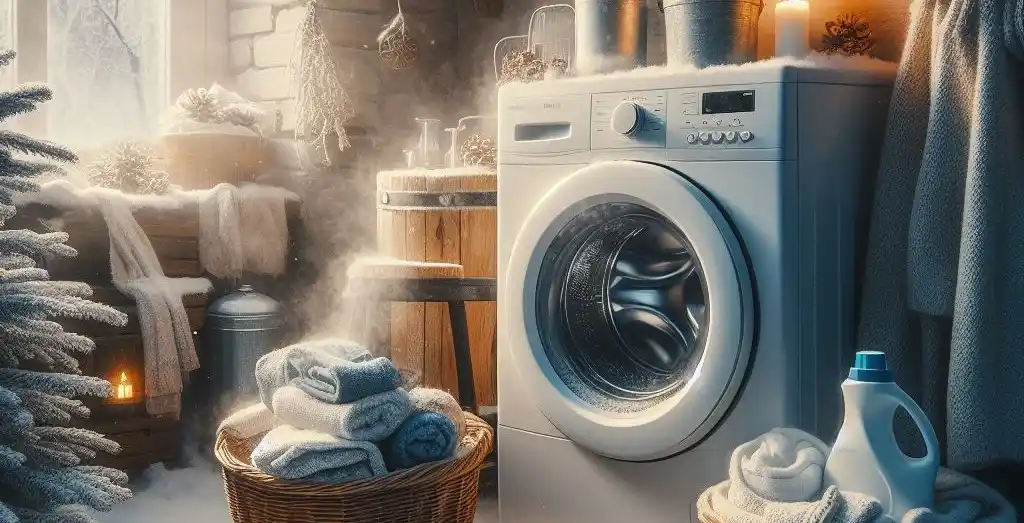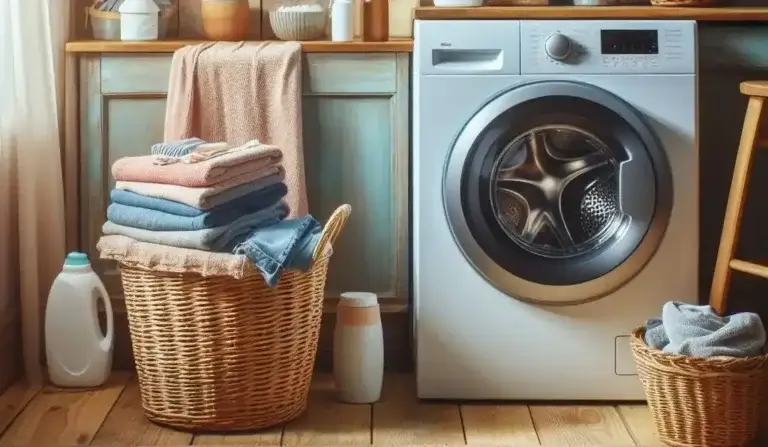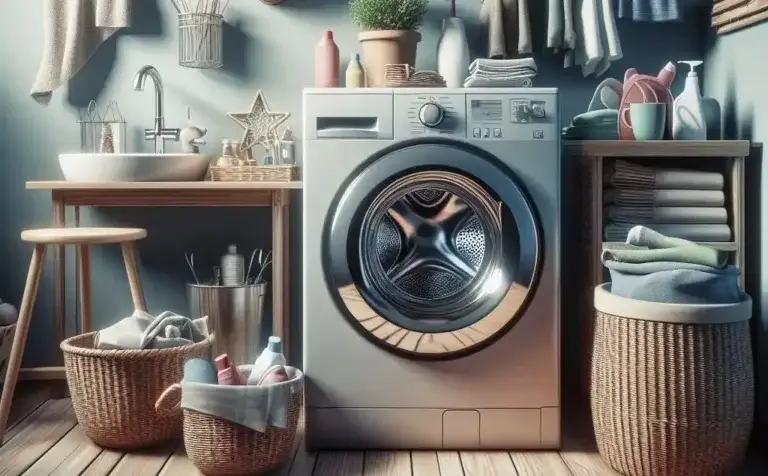How to Keep Washing Machine from Freezing in Garage During Winter
Having your washing machine located in the garage poses a major risk of pipes freezing and bursting during the winter months. Freezing temperatures can damage the water lines and valve fittings, resulting in leaks, flooding, mold issues, and costly repairs. Protecting your washing machine from freezing is crucial for any homeowner.
In this comprehensive guide, we will discuss everything you need to know about how to keep washing machine from freezing in garage. With proper preparation and preventative measures, you can avoid pipe damage, leaks, and flooding disasters.
Table of Contents
Why Keeping the Washing Machine in the Garage Poses Freezing Risks
Laundry appliances like washers and dryers use water lines for the wash/rinse cycles and to drain wastewater. If these pipes, hoses, or fittings freeze, it can lead to:
- Cracks and bursts in the water supply lines
- Leaking water that damages walls, structures, and belongings
- Flooding issues if burst pipes go unnoticed
- Mold and mildew growth from water exposure
- Not being able to use the washing machine
- Expensive repairs and replacement costs
The average temperature at which water in pipes starts to freeze is 32°F. In northern climates, garages can easily reach temperatures below freezing for months at a time in winter. An uninsulated garage offers little protection for plumbing lines.
Even occasional freezing temperatures in the garage put your washing machine’s pipes at risk of freezing. This can happen when the ambient temperature overnight or during cold snaps dips down to freezing.
Burst water lines or a malfunctioning washing machine as a result of freezing can cause extensive and costly water damage. Taking preventative measures is much easier and affordable than dealing with repairs later on.
How to Keep Washing Machine from Freezing in Garage During Winter? Solution is Here
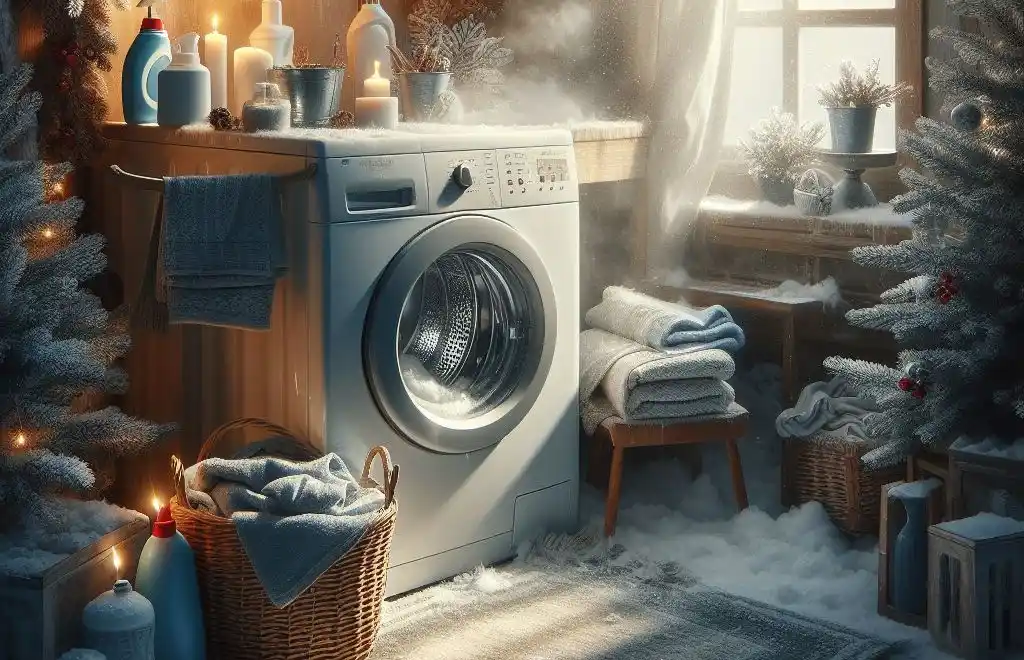
There are several effective ways for homeowners to winterize washing machines in garages and prevent pipes from bursting due to freezing.
Insulate Water Pipes & Supply Lines
Insulating all water/drain lines for your washing machine is the first crucial step. The more insulation you can provide around the pipes, the better protected they will be when the mercury plummets.
There are two main approaches to effectively insulating washing machine pipes:
1. Foam Pipe Insulation Wraps
Wrapping plumbing pipes with foam insulation sleeves is an easy DIY solution. Foam tubing insulation can be purchased in various sizes, thicknesses (typically 1/2” to 1”), and lengths.
To insulate pipes:
- Clean pipe surfaces so insulation can adhere properly
- Slit lengthwise so you can wrap around plumbing lines
- Seal seam with adhesive foam tape to prevent air gaps
- Secure insulation with zip ties or adhesive strips as needed
Using the widest insulation possible allows you to layer and double up thickness around pipes. Having 1” to 2” thickness is best to counter frigid winter temps. Prioritize insulating pipes most prone to drafts or cold exposure.
2. Fiberglass Insulation
For the most heavy-duty protection, fiberglass insulation batts are very effective for insulating water lines. The washers housing box and water pipes leading in/out can be packed tightly with insulation batts.
Aim for at least 8” to 12” thickness of insulation material surrounding pipes. This creates a blanket barrier against cold garage air contacting the pipes. Secure batts with wiring to prevent shifting.
Fiberglass does require more handling precautions – wear long sleeves, pants, gloves, and eye protection when installing.
Install a Space Heater in the Garage Near the Washing Machine Area
Providing a supplemental heat source is another winterizing tactic that helps prevent washing machine pipes from freezing. Even small space heaters can keep garage temperatures warm enough.
Ideally, install a heater near the washing machine utilities and pipes. Choose an appliance with an auto-shutoff feature for safety. Maintain temperatures to at least 40°F within that area at a minimum.
Check current garage temperatures with a wireless thermometer. Run space heater routinely whenever exterior temps dip near freezing to maintain safe ambient temps around the washing machine.
Disconnect Hoses During Cold Spells
In extreme subfreezing conditions, fully disconnecting water inlet/outlet hoses adds crucial protection.
To disconnect washing machine hoses:
- Turn off the water valves supplying the washing machine
- Switch power OFF first
- Release water pressure by briefly running a rinse cycle
- Disconnect the INLET hoses at the laundry faucet
- Disconnect the drain hose from the outlet or laundry sink
- Coil up all hoses neatly to store away from the washing machine
- Consider capping ends with insulation covers as an added barrier
This eliminates the risk of residual water inside the hoses freezing and expanding/contracting during Arctic cold snaps.
Storing drained hoses in warmer areas of the garage or indoors is best. Reconnect everything once the extended cold subsides.
Use RV Antifreeze in Drains
Adding RV antifreeze into sink drains can further winterize laundry utilities. Follow product instructions for how much to use:
- Turn the washing machine power OFF
- Pour plumbing antifreeze down the laundry sink drain
- Antifreeze flows through traps and drain lines
- Displaces water that could freeze in P-traps or pipes
- Helps prevent ice blockages in drains/vents
This adds another layer of cold protection for washing machine hookups. Re-flush drains when the warmer season returns.
Maintain Heat in the Garage
Keeping your garage warmer overall in winter is an obvious solution for avoiding washing machine cold issues. Supplemental heating combined with maximizing building insulation makes a big impact.
- Insulate garage doors, attic hatch, and any gaps/cracks
- Ensure tight door seals so heat does not easily escape
- Upgrade to high-R rating garage door insulation
- Run one or more portable heaters during cold months
- Consider installing permanent radiant heating solutions
Ideally keeping your garage above 50°F even on cold winter nights ensures pipes won’t have issues. Investing in insulation and heating gives reliable protection.
Drain & Store Washing Machine For Winter
For vacant homes or prolonged absences in winter, fully draining and then storing the washing machine indoors is advisable. This eliminates any freezing risk, for absolute peace of mind.
- Turn the power OFF and run a rinse cycle
- Disconnect all water lines & drain hose
- Allow the inner tub to fully drain the residual rinse water
- Ensure no water remains in the pump or hoses
- Move the washer to an indoor heated area if possible
- Otherwise, cover it securely with a heavy blanket
This ensures no water remains in any hoses or the unit itself that could freeze. Safely storing away for winter removes the risk entirely.
Monitor Garage & Run Washer Regularly
One of the easiest preventative measures is monitoring winter garage temperatures and running the washing machine often.
Using wireless thermometers allows you to closely track ambient temps around the washer. If it nears freezing, take proactive measures like running portable heaters.
Running a load of laundry once a week circulates water through the pipes. This replaces any stagnant water with fresh running water less prone to freezing internally. Stagnant water freezes quicker than flowing water.
Combining monitoring with preventative heating and winterizing steps ensures your system stays protected.
What to Do If Your Washing Machine Freezes
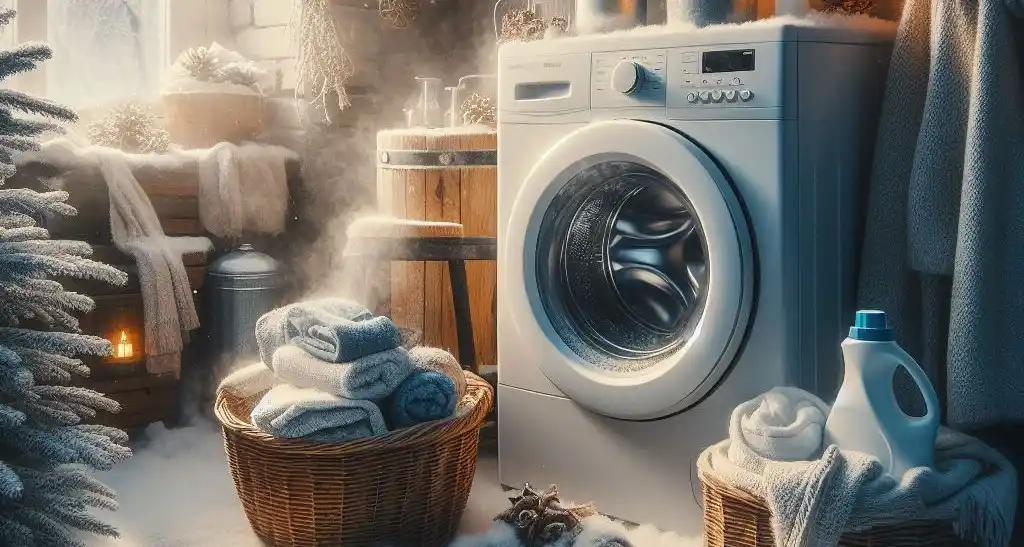
Even with diligent preventative measures, it is still possible for some freezing to impact your washing machine. If you suspect it has frozen, quick reaction is important to avoid pipe bursting.
Signs Your Washing Machine Has Frozen
How can you tell if the pipes or internal components have frozen? Be on the lookout for these indicators:
- Ice visible on water lines or valves
- The washing machine failing to fill with water
- Supply lines feeling stiff or cold to the touch
- Spin drum fails to turn properly
- Error code showing on control display
- Strange noises from valves or pumps
The most likely components to suffer frost damage are fill-inlet valves and residual water trapped internally.
Thawing Safety Precautions
If signs point towards frost damage or frozen components, do NOT directly heat pipes with flame or high-powered heating devices! Rapid thawing can expand frozen water enough to rupture pipes and valves.
Instead, follow SAFE thawing methods:
- Keep garage area safely heated to allow gradual warming
- Warm pipe insulation covers can help slowly radiate heat
- Use low-wattage heat lamps to raise ambient temps
- Apply towels soaked in warm water, wrapped around frozen components
- Repeat the warm water soaking process until the ice melts
- Confirm water is flowing BEFORE operating the washer
The key is PATIENCE – allow frozen parts to safely thaw without risking damage from overheating. This requires diligently monitoring conditions over hours or days.
Reset Washing Machine & Check For Leaks
Once thawed with confirmed water flow:
- Reconnect the fill hoses & turn the water supply back on
- Plug the washer power cord back in
- Run emergency drain cycle to flush lines
- Visually check ALL connections for water leaks
- Run an empty rinse cycle and ensure proper function
- If leaks occur, immediately turn off water & power
Washing machines have built-in freeze prevention that requires resetting the computer by running special modes. Consult your user manual for the required steps.
Watch closely the first few times running your thawed washing machine to ensure no leaks or abnormal sounds occur.
Preventing Garage Washing Machine Pipes from Freezing All Winter
Avoiding a frozen nightmare with your garage washing machine is all about prevention. Follow this winterizing checklist reliably whenever cold conditions commence:
🔸 Insulate water pipes with foam or fiberglass insulation
🔸 Install temporary space heaters to maintain safe temps
🔸 Disconnect hoses during sub-freezing cold snaps
🔸 Flush RV antifreeze in floor drains to protect traps
🔸 Run washing machine weekly to circulate water
🔸 Monitor temps and run heaters anytime it nears freezing
🔸 Store washer safely indoors for extended vacations
This comprehensive plan when followed diligently will save you headaches all winter long! Protect pipes proactively since fixing frost damage after the fact can be extremely costly and damaging. Maintaining proper heat around your system is the ultimate solution.
FAQs About Protecting Garage-Located Washing Machines From Freezing Temperatures
Winterizing your appliances against cold weather risks sparks many common questions for homeowners. Here are helpful answers to some frequently asked questions:
What temperature do washing machine pipes freeze?
Water lines generally begin freezing at temperatures of 30° to 32° Fahrenheit. Prolonged temps below freezing put pipes at high risk.
Where should I locate space heaters to prevent the washing machine from freezing?
Position portable heaters near the water supply lines, drain, and boxed rear of the machine where pipes enter/exit. Focus heat on vulnerable plumbing components.
Is it OK to use heat tape on washing machine hoses?
Wrapping the rubber fill hoses with electric heat tape is not recommended or safe. However, heating the water line along the floor to the laundry hookups is fine.
Should I fully drain the washing machine hoses & internal tub?
If garage temperatures fall below 10°F for extended periods, fully draining all water from hoses and internal tubs is the best winterizing practice.
What is the error code on the washing machine display after freezing?
Most washers show fault codes like IE, CE, OE, or EF when electronic control modules freeze. Consult the manual for error code meanings and required resets.
How often should I run the washing machine if kept in a cold garage?
Laundry experts recommend running a cycle at least once weekly during winter. This prevents stagnant water from remaining in pipes which can freeze quickly.
Keeping your washing machine safely operational all winter comes down to preparation and vigilance. With proper care taken to insulate pipes, provide supplementary heating, and monitor conditions — your system will stay protected from frost and freezing temperatures.
Conclusion
Preventing water lines and internal components in your garage washing machine from icy damage is quite achievable. Some combination of insulation, supplemental heat sources, disconnecting hoses, RV antifreeze treatment, and monitoring/maintenance is necessary.
Addressing vulnerable areas like drainage and water lines going to/from the unit before the bitter cold arrives is key. Ongoing vigilance whenever low temperatures occur also ensures your system will avoid the risks of freezing all winter long.
With this comprehensive winterizing guide’s proactive prevention methods, you can confidently keep laundry appliances operational and avoid costly repairs or replacement from frost damage. Stay attentive and your washing machine will remain protected all season!

